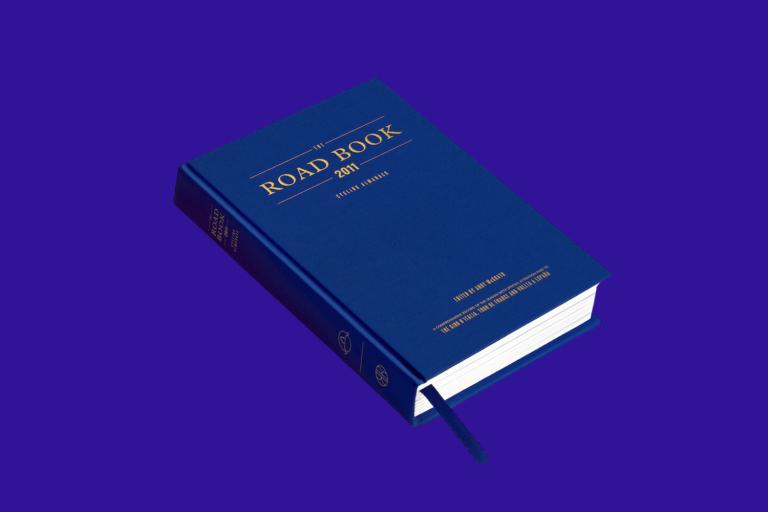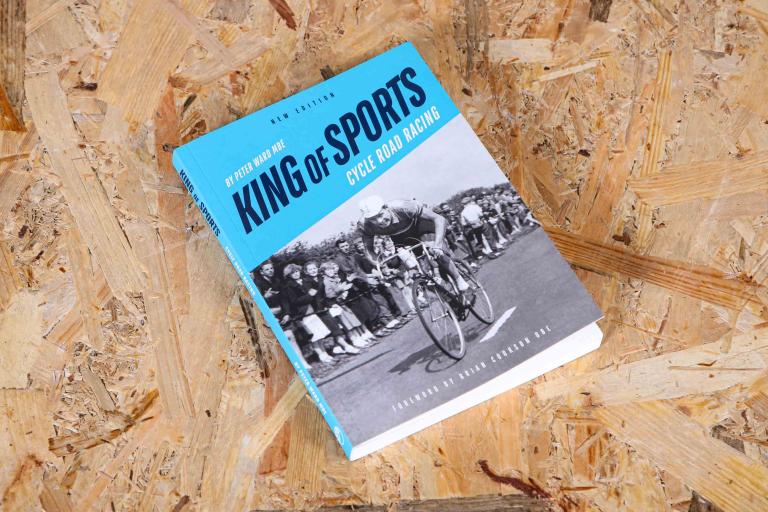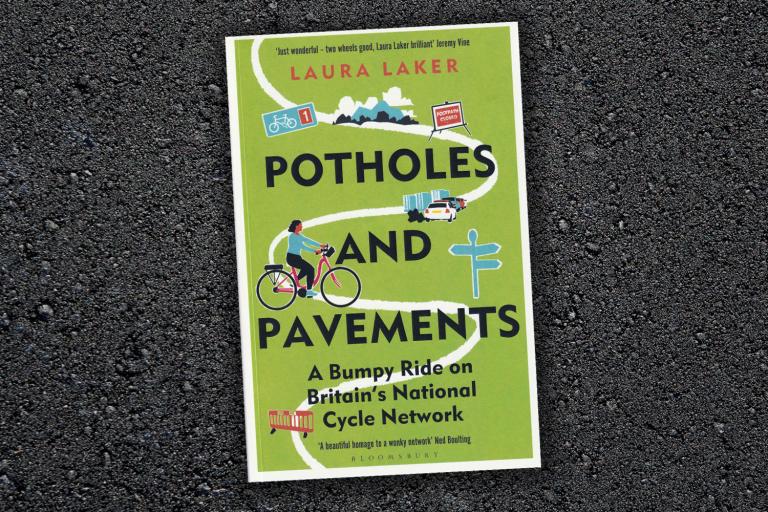- News
- Reviews
- Bikes
- Accessories
- Accessories - misc
- Computer mounts
- Bags
- Bar ends
- Bike bags & cases
- Bottle cages
- Bottles
- Cameras
- Car racks
- Child seats
- Computers
- Glasses
- GPS units
- Helmets
- Lights - front
- Lights - rear
- Lights - sets
- Locks
- Mirrors
- Mudguards
- Racks
- Pumps & CO2 inflators
- Puncture kits
- Reflectives
- Smart watches
- Stands and racks
- Trailers
- Clothing
- Components
- Bar tape & grips
- Bottom brackets
- Brake & gear cables
- Brake & STI levers
- Brake pads & spares
- Brakes
- Cassettes & freewheels
- Chains
- Chainsets & chainrings
- Derailleurs - front
- Derailleurs - rear
- Forks
- Gear levers & shifters
- Groupsets
- Handlebars & extensions
- Headsets
- Hubs
- Inner tubes
- Pedals
- Quick releases & skewers
- Saddles
- Seatposts
- Stems
- Wheels
- Tyres
- Health, fitness and nutrition
- Tools and workshop
- Miscellaneous
- Cross country mountain bikes
- Tubeless valves
- Buyers Guides
- Features
- Forum
- Recommends
- Podcast
review
£20.00
VERDICT:
An alternative history of cycling on the road from the perspective of 50 'key' participants
Weight:
899g
Contact:
At road.cc every product is thoroughly tested for as long as it takes to get a proper insight into how well it works. Our reviewers are experienced cyclists that we trust to be objective. While we strive to ensure that opinions expressed are backed up by facts, reviews are by their nature an informed opinion, not a definitive verdict. We don't intentionally try to break anything (except locks) but we do try to look for weak points in any design. The overall score is not just an average of the other scores: it reflects both a product's function and value – with value determined by how a product compares with items of similar spec, quality, and price.
What the road.cc scores meanGood scores are more common than bad, because fortunately good products are more common than bad.
- Exceptional
- Excellent
- Very Good
- Good
- Quite good
- Average
- Not so good
- Poor
- Bad
- Appalling
Break Away offers a slightly unusual history of cycling, focusing as it does solely on road cycling, and limiting itself to only featuring 'fifty of the most important people to have stepped on a bicycle'. There may not be much that is truly new here, but what you get is a well-judged précis of the chosen people, and a largely familiar selection of images.
Break Aways are a feature of road races, but despite that title this book is not about road racing, just cycling on the road in its many forms. 'Some bicycles are made for dirty mountain tracks, some are for doing tricks, some fold, some can't make up their mind and get called hybrids' – and for the most part anyone undertaking those disciplines is ignored.
However, cyclists who 'go round and round and round on tracks' cannot be completely dismissed because so many of the featured cyclists are equally well known for their exploits on the track as the road, such as Bradley Wiggins, Graeme Obree, and Marshall 'Major' Taylor.
For each rider there is up to a page of text, and up to three pages of pictures, so it is not an onerous read. The extensive bibliography indicates that Ferguson has done plenty of research, and it is to his credit that he has been able to summarise each rider's contribution to road cycling so effectively – although space limitations mean there have to be compromises.
Although 50 riders are covered, only 48 chapters are required as the Bobet brothers share a chapter, as do the Pélissier brothers. Each chapter starts with a quote relating to the rider, often from a biography – but it is not always the most obvious choice of quote. It was refreshing to see that Ferguson avoided the temptation to use 'Put me back on my bike' with Tom Simpson, for example.
He also manages to avoid the controversy that sometimes surrounds any claim that Kirkpatrick Macmillan invented the bicycle by calling his invention 'the first ever two-wheeled machine that could be driven without feet on the ground' – which may or may not be the definition of a bicycle. For good measure, he also puts the date of this invention as 'around 1840', neatly side-stepping any argument about a disputed 'fact'.
Among the remaining riders are some you might expect, some you might not; inevitably some readers will want to debate the inclusion (or exclusion) of some entries, but with only 50 spaces to fill Ferguson was never going to satisfy everybody.
Not everyone will welcome the inclusion of Marco Pantani, David Millar, Floyd Landis and, of course, Lance Armstrong, but in the context of their impact on cycling history they are surely relevant. Mark Twain and HG Wells are better known for their writing than riding, and so bring a different perspective to the book.
> The books every cyclist should have on their shelves
There are several instances where I knew the story but had forgotten the name of the rider concerned. One example was Tessie Reynolds, who 'rode one of the most far-reaching' 100-mile cycles ever in 1893 when she did it in 'rational dress'. Her clothing was 'scandalous and provocative', but was an important step towards allowing women to cycle in practical clothing.
For me there was only one properly unexpected inclusion, a Peter Sloterdijk, who I doubt would be on many readers' short lists – or even long lists – and he still would not be on mine...
The book may be fairly heavyweight (at least in hardback format), but the content is quite lightweight, which makes it a good example of the sort of undemanding reading material that always succeeds at Christmas.
Verdict
An alternative history of cycling on the road from the perspective of 50 'key' participants
road.cc test report
Make and model: Break Away: The heroes and hellraisers that made road cycling by Euan Ferguson
Size tested: Hardback, 208pp
Tell us what the product is for, and who it's aimed at. What do the manufacturers say about it? How does that compare to your own feelings about it?
From Frances Lincoln:
No sport demands and celebrates the suffering of its participants like road racing, yet the pursuit of cycling was formed out of a spirit of emancipation, freedom, invention and revolution. It started with Victorian adventurers who took their new machine across continents, up unscaled peaks and into the first races, followed by those who saw the potential of the bicycle as a radical mode of transport, before the twentieth-century sun shone on a golden age of cycling, bringing fame and fortune to its glamorous new sporting superstars.
Through fifty key riders, from early pioneers like Mark Twain to modern superstars like Eddy Merckx, Break Away is a fascinating and arresting new history of road cycling.
Tell us some more about the technical aspects of the product?
Title: Break Away
Author: Euan Ferguson
Publisher: Frances Lincoln
Date: September 2016
Format: Hardback
Pages: 208
ISBN: 9780711238084
Price: £20
Rate the product for value:
5/10
Average value for a hardback book of this size.
Use this box to explain your score
It will make a good primer on the history of cycling – but only a part of it. Any knowledgeable enthusiast is likely to be left unfulfilled, though.
About the tester
Age: 55
I usually ride: My best bike is:
I've been riding for: Over 20 years I ride: Every day I would class myself as: Expert
I regularly do the following types of riding: commuting, touring, club rides, sportives, general fitness riding











Exactly how is wearing hi vis, being able to see a "loony approaching in advance" and planning a route in advance supposed to stop us from being...
she questioned what Police Scotland is doing to "deter dangerous driving and protect cyclists"...
I've got a few reports coming up to one year where I've been told that they will take action but I don't know what action yet. I'll let you know...
I feel Flintshire Lad's response - "A LABOUR councillor (candidate)!"...
Last clip especially for wtjs !!...
Haha, that my pet peeve....
I'm not sure the UCI worlds are on the protected sports list, as surely CX & MTB would be shown too, the Beeb probably just acquire it as part...
Re-deployed on Twitter duty?
Maybe... I was taking a slightly wider interpretation, just *bringing* Nazis and Hitler into an argument
Ear, ear!